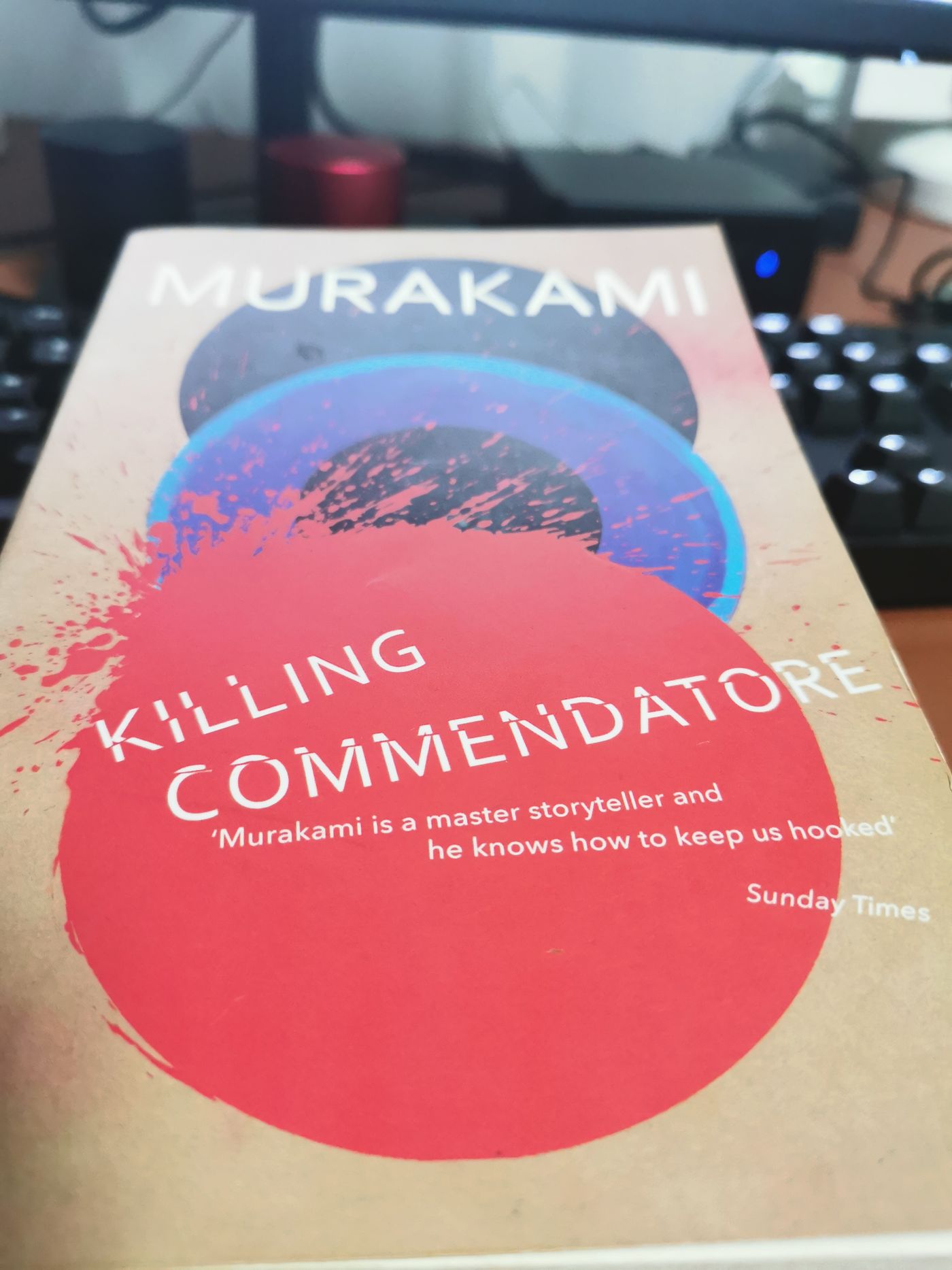
哔哩哔哩:https://space.bilibili.com/453373112 油管:https://www.youtube.com/@JS_dushu HIVE:https://hive.blog/@weisheng167388
I'm trying to write some thoughts on "Assassination of the Knight Commander"

This is the third time reading this book.
When I read it for the first time, the simplified version was not published, but the Taiwan version was traditional and vertical. In addition, the translator's language habits were different from mine. As a result, the reading was cloudy and foggy, and I gave up without even sorting out the plot. .
The second time I read it was a year ago. [Portal: Reading Notes at the Time] I read the English translation. Compared with the first time I read it, there are two improvements.
First of all, because of the limited level of English, the reading speed dropped a lot, but it was a blessing in disguise, and the plot was sorted out under slow reading.
Secondly, after reading it, I searched for relevant information. Regarding the concept of the Buddha, Plato has a superficial understanding of the concept of imitation of the real world, while art is the imitation of the real world. I have some ideas about the content of the book.
This is the third time I've read this book. Strictly speaking, it's not reading, but listening. I found an audiobook on WeChat Listening to the Book, the performer is online, and the production is excellent, so I finished listening to it smoothly. It took about two weeks, and I still used corner time such as commuting to get off work and cooking and walking the dog.
Compared with the previous two readings, I have two new feelings this time, and I will record them here for reference in the fourth or even fifth reading in the future.
The first new feeling has to do with the concept of the Hero's Journey Circle .
The Hero's Journey Circle refers to a way of telling a story: a hero is called to explore an unknown world, endure hardships, and then return to the previous world with a harvest.
I applied the hero's journey circle to the story line of this "Assassination of the Knight Leader", and found that it was more consistent. The "I" in the story is naturally the hero. The so-called being called is actually that the wife has another man and wants to divorce "me", so "me" leaves home alone. The exploration refers to the "I" encounter with the colorless, and the ordeal is that I was trapped in the cave behind the small temple. The ending of the story is that "I" returned to my wife's side, that is, I returned to the previous world in the hero's journey circle.
The only ambiguity is: what exactly did I bring back to the real world?
According to the theory in Robert's "Story", a good story always allows us to see the growth of the protagonist. So, does the protagonist of "Assassination of the Knight Leader" also return to the original world with the so-called growth? Or change?
And then where did it grow and where did it change, it's hard for me to tell the specifics. This is not middle school reading comprehension after all.
I have always regarded reading novels as a puzzle-solving game. The questions left by the story before me are not judgments of right or wrong, nor multiple-choice questions, but subjective play questions.
The second new feeling is that I feel the tension of the story.
It's a long story, and it doesn't have the layered suspense of a detective novel, but I didn't find it long-winded or boring to read (when I first read Murakami's book, the biggest feeling was long-winded and boring).
What am I attracted to? It's actually the tension of the story. Murakami's language is delicate, and the descriptions of reality and imagination are master-level vivid. In some places, there are even descriptions of how to wash a cup and how to open the refrigerator. However, the reason why I don't find it boring is because I can always feel it. To the internal conflict of the characters and plot behind the simple actions depicted by the simple language has been simple language.
When teaching students to write, it is always said to write feelings and psychological descriptions. Murakami did not directly write feelings and psychological descriptions, but only through the line-like language, let us feel the tension behind the pictures. Yes, it is more appropriate to use the word tension.
When appreciating poetry, pay attention to imagery, isn't it also a reason to agree.
Finally, a few words off topic.
In the past, I liked to read new books. I always felt that there were more exciting and good stories waiting for me in the next book. When I read the book, I felt like I was swallowing all the dates, even if I was hungry. In the past two years, I felt that my energy was low, and I finally realized the anguish of being boundless. Instead, I was able to get rid of some panic and re-read some books that I couldn't read before. This might be a little improvement for me.
Like my work?
Don't forget to support or like, so I know you are with me..
Comment…